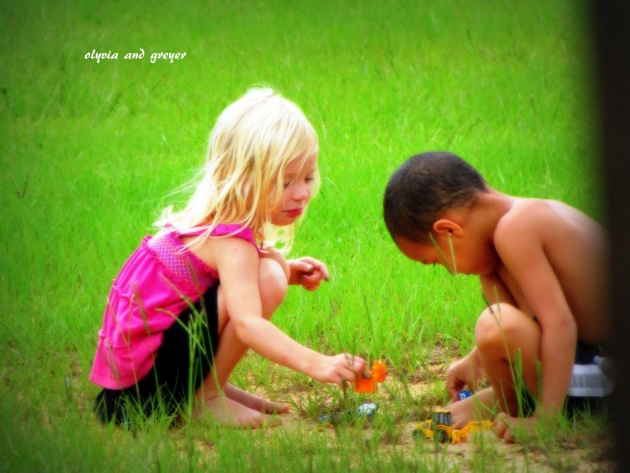What is “empathy” and why is it important? “Empathy” is the ability to be aware of another’s perspective and regulate your own emotional responses. It contributes to emotional stability, resilience, the ability to overcome adversity, social connectedness, and general contentment. Empathy is absolutely a skill worth cultivating on our children. But how do we go about such a task?

1. Provide consistent emotional and physical support to your child.
Studies have demonstrated that when kids have secure attached relationships, they are more likely to start caring for other children in distress.
2. Give your child plenty of physical affection.
Research shows that people who are provided with hugs, cuddles, and other physical touch, experience increases in their oxytocin levels. This, researchers believe, contributes to better abilities to decode, understand, and relate to the experiences of others.
3. Keep in mind that your child is his/her own person with a mind of his/her own.
This allows for discussions about the unique perspectives and emotions of your child, without any inaccurate assumptions or projections. It also helps instill the idea that “it is okay to accept other people’s unique goals, desires, beliefs, feelings, and thoughts.”
4. Role-play with your child.
In one study, kids were asked to act-out the difficulties of old age (wearing glasses to distort vision and gloves to inhibit fine motor skills), and they ended up having much more empathy for the elderly. Sometimes, asking a child “how would you feel if….” is not as effective as actually role-playing being in the situation.
5. Intentionally discuss the perspectives of others.
Ask your child how he thinks people and characters feel given their situations. Use real-life, books, and movies as material. What do the characters feel, and why? What unique and formative experiences have they had to lead them to feel a certain way? One study showed that kids who discussed the emotions of characters in a book demonstrated more empathic tendencies than kids who simply read the books and drew pictures.
6. Empathize with your child and then teach your child to problem-solve when he or she experiences negative feelings.
Research indicates that kids are more likely to show empathic concern for others if they have parents who show sympathy and guidance all them time, not just when they are upset.
7. Intentionally point out this fact: When a person looks at someone else’s upsetting situation while that person is in a calm emotional state, it is hard for that calm person to truly understand what the upset person is going through.
When your child is really upset about something, take that opportunity to point out that THIS is how so-and-so felt when such and such happened. In essence, strike while the emotion is hot.
8. Show your own empathy for other people in front of your child.
Pointing out your understanding of other people’s perspectives and sympathy for their situation is modeling such behavior for your child. Books, movies, and real-life can all provide opportunities for demonstrating your own empathy.
9. Talk about the way your child’s feelings affect his or her choices in behavior.
Connect the dots between the time your child was feeling inferior from getting a low grade and two hours later when he called his little brother stupid.
10. Point out what your child has in common with other people.
Research shows that kids are more likely to feel empathy for other children who are similar to them. If your child is annoyed with his little brother for making so much noise, point out that when he was three, he loved to make race-car noises too.
11. Teach your child the pro-social reasons for rules instead of simply threatening punishment.
Teach him or her that it is not okay to hit because it “hurts others,” not so he or she avoids time out. Teach him or her about the effects of stealing on its victim, not about how “criminals go to jail.”
12. Teach your child about validation.
Teach your child that others act the way they do for understandable reasons, given their experiences, sensitivities, and emotional and physical needs, and unique situations. Before your child continues on his tirade about how disgusted he is that his teacher yelled at him for no reason, explain that perhaps this woman’s behaviors were influenced by many experiences with bratty teenagers over her teaching career. For older kids, you may even go so far as to teach them about the famous Stanley Milgram experiment when average, pro-social people were persuaded into giving others painful electric shocks given the situation, tendency to trust, and need to conform.
Source:
http://www.lifehack.org/articles/lifestyle/12-ways-teach-your-children-the-skill-empathy.html



